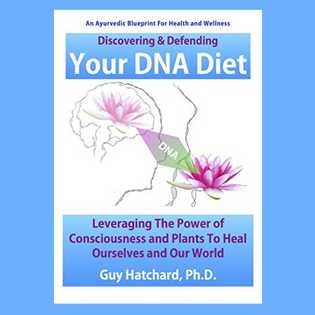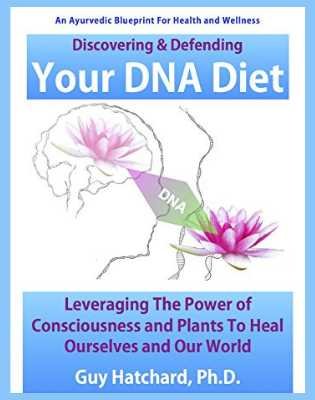The NY Times is heralding a new company called Mechanize formed in San Francisco to produce software with the ‘audacious’ (???) goal of replacing 50% of white collar jobs with AI within the next five years. They plan “to fully automate all jobs….including doctors, lawyers, architects, and childcare [aka mothers and parents???]”.
Let me first rush to reassure you this is not going to happen, because recent definitive research has found that AI is not actually very intelligent. Artificial Idiot might be a better term. A devastating study commissioned by Apple computers has found that AI suffers a complete accuracy collapse in the face of complex problems. The authors concluded that AI may be completely devoid of any reasoning ability that can be compared to that of humans. Leading AI critic Gary Marcus wrote on Substack “Anybody who thinks LLMs [the engines of AI models] are a direct route to the sort [of] AGI [artificial general intelligence] that could fundamentally transform society for the good is kidding themselves.”
It seems AI can’t even match the intelligence of the wild boar stalking around our property who has learnt to avoid traps, dogs and multiple hunters. The Apple study found that AI tends to prefer to waste time on trivial problems that are easy to solve and fails miserably when confronted with critical problems. The sort of white collar worker attributes all employers dread. If we do start relying on AI for white collar work we are going to rapidly find ourselves living in a world resembling Alice in Wonderland, or perhaps we are already there. Possibly planes will routinely fall out of the sky and ball point pens will clog up on their first use.
Our daily experience teaches us that life is a complex problem, one that we are working hard to solve every minute of the day. Rioters in Los Angeles have been burning self-driving cars, apparently the AI which controls these cars was unable to respond to the highly complex social problems involved. To sum it up, AI is rather simple minded and ill suited to life in general.
In fact the application of simplistic models to medicine has already led us to a world with serious problems resulting from interventions that are sold as solutions. A paper entitled “Evaluating Vaccine Effectiveness During the COVID-19 Pandemic: Insights from Statistical and Machine Learning Methods“, has found that contrary to expectations, vaccinated individuals lost 40% more working days due to Covid infection than their unvaccinated counterparts (p<0.0001). But the vaccinated were not just taking a higher number of days off work, they were also dying in greater numbers as a study entitled Paradoxical increase in global COVID-19 deaths with vaccination coverage: World Health Organization estimates (2020–2023) published in April of this year concludes: “The Americas (39.8%) and Europe (34.1%) accounted for more than 70% of global COVID-19 deaths despite high vaccination”. Moreover Covid deaths increased when Covid vaccination began belatedly on continents like Africa.
These figures point to increasingly faulty modelling of the potential effects of medical interventions when compared to actual outcomes. A narrow focus on a highly simplified effect pathway of a medicine leads evaluators to ignore physiological and genetic complexity which is highly likely to lead to adverse effects.
Take so-called weight loss drugs like Wegovy, Mounjaro and Ozempic for example, that have been popularised by the Hollywood elite and clever campaigns from drug companies in alliance with the media. An article in New Scientist is entitled “GLP-1 drugs are only the start – the powerful drugs to expect next“. This outlines the widely touted claim that weight loss drugs are a gateway to health, potentially curing leading killers such as heart disease. The Guardian sums up the incredible claims in one startling paragraph:
“The benefits of being at a healthy weight are substantial, with one study published in January suggesting weight-loss jabs could reduce the risk of 42 diseases including heart disease, cancer, clotting disorders, Alzheimer’s, chronic kidney disease, addiction and a range of psychiatric conditions. There is early evidence that these benefits go beyond what might be expected due to the drugs’ metabolic effects.”
Phew!!! But these claims ignore the mounting evidence of harm. Known adverse effects include constipation and in extreme cases potentially fatal intestinal blockages, loss of vision including blindness, pancreatitis, nausea, stomach pain and gallbladder dysfunction. They also ignore the inevitable weight gain when the injections cease.
While the weight lost via GLP-1 drugs can bring about some health benefits, up to 40% of the weight lost includes a decrease in muscle mass and lessened bone density, along with a lowered resting metabolic rate. These are the symptoms of a condition associated with ageing known as sarcopenia — the gradual loss of muscle mass, strength, and function. In other words, weight loss drugs could be accelerating the aging process. Only longer term mortality studies will be able to assess the level of risk—studies that have not yet been undertaken. In time we may be viewing some rather prematurely aged Hollywood stars on the silver screen using walking canes to complete their action sequences and telling their lovers they are too tired to continue.
So much for the good then that RFK Jnr. has appointed all new US vaccine advisors after sacking the previous committee. Kennedy said the new members “have each committed to demanding definitive safety and efficacy data before making any new vaccine recommendations.” The health secretary added “All of these individuals are committed to evidence-based medicine, gold-standard science, and common sense.” I don’t know what Kennedy thinks about AI, but I am truly grateful he did not appoint a short sighted computer to replace the committee, as some tech whizzes in kooky California are planning, instead trusting in common sense. I second that.






